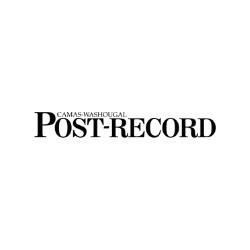Consultants hired by the city of Camas will soon complete the first phase of a two-phase lake management plan designed to address pollution sources and improve lake water quality in Camas’ Lacamas, Round and Fallen Leaf lakes, but critical data collection will have to wait until the state approves the city’s Quality Assurance Project Plan (QAPP).
“As we got into things in phase one and started working with (the Washington State Ecology Department), we knew we would need to collect some sort of data,” Camas Public Works Director Steve Wall explained to the Camas City Council during its regular meeting on Sept. 20. “In talking with Ecology, for them to accept the data that gets collected, we have to complete a (QAPP) … field data collection and analysis was one of the first things we had identified for phase two, so we want to get moving on the QAPP and submit it to Ecology as quickly as we can.”
The state could take at least two months to sign off on the city’s QAPP, Wall added, but that won’t stop consultants from moving on to other components of phase two.
“A lot of things are moving in parallel,” Wall said. “We’re trying to finish phase one and get started on the QAPP and (then) get moving on field data collecting.”
After experiencing several toxic algal outbreaks in Lacamas and Round lakes in 2019 and 2020, the city council approved spending up to $300,000 — funded by the city’s stormwater utility fund and available grants — to create a lake management plan for all three lakes, establish water quality goals and develop strategies that will improve the lakes’ water quality and, eventually, help prevent toxic algae blooms.
The city hired Geosyntec Consultants earlier this year to start on the first phase of the lake management plan, and come up with a work plan for the second phase.
Wall said the phase-one scope of work includes reviewing background data to better understand the lakes’ water quality and historical data, identifying short-term actions to help improve water quality in the lakes; communicating with stakeholders to understand concerns about the lakes; pinpointing funding and volunteer opportunities to help improve lake water quality; and planning how to create the actual lake management plan.
“Phase one is nearing completion,” Wall told the city council on Sept. 20.
In August, a Geosyntec consultant told city officials a critical step in addressing the lakes’ water-quality issues will be to figure out exactly where pollution, including phosphorus, is entering the lake system.
“Lacamas Creek accounted for the majority of phosphorus inflows to Lacamas and Round lakes in the 1980s,” the consultant said during an Aug. 2 council workshop. “We have to check to see if this is still true. Reducing phosphorus loading to the creek from the watershed will be necessary to reduce the occurrence of algal blooms.”
Since there have been no “serious” studies on the lakes’ water quality since the mid-2000s, he added, “it is important to determine the sources coming into and out of the lake … so we know where to focus our efforts in the future.”
Wall added that the city and its consultants are not making any assumptions about the possible sources of pollution in the lakes or the reasons behind the frequent toxic algal blooms, which can be harmful to humans and can kill smaller animals, including dogs that drink the water or come into contact with an algal bloom.
“The idea wasn’t to just jump in and make assumptions about what we think may or may not work,” Wall told city officials on Aug. 2. “We want to base this on the science. We have to figure out what’s going on (with the lakes’ water quality) and what the current conditions are.”
Wall said the QAPP is expected to cost $22,700, which includes meetings with Ecology staff and revisions after Ecology reviews the draft document. The city had agreed to fund a $7,000 “contingency task” to collect data from the three lakes during the summer, which will help pay for the QAPP costs, Wall said. The remaining $15,700 will come out of the $50,000 Freshwater Algae Control Program grant the city recently received from Ecology.
The city council is expected to approve the QAPP costs and give the go-ahead to consultants to begin the plan at the council’s Oct. 4 regular meeting.
The city recently suspended the work of the citizen-led Lacamas Creek Watershed Committee due to a threatened lawsuit against the city related to a biofilter in the city’s lakeside Lacamas Shores housing development.
In a press release issued by the city’s communications director, Bryan Rachal, last week, city officials said the ad-hoc committee was doing good work, but was suspended “on the advice of legal counsel.”
Wall added that the city’s work on the lake management plan continues despite the threatened lawsuit and the suspension of the committee.
“We need to continue building on the momentum the Community and partner agencies have provided us,” Wall said. “We know this is a multi-faceted issue with many stakeholders involved and we must continue the good work we’ve done to date, as we strive to find the necessary solutions.”
He added that city staff and consultants are still dedicated to collecting public input on the lake management plan.
“Community involvement will be one of the primary keys to our success,” Wall said. “In that vein, we will continue with our plan to have an extensive public outreach and involvement plan for our next phase of work and to continue to post updates to Engage Camas and to our website. We really need the community to stay involved as we move through this process to make sure we find potential strategies that our citizens will get behind and actively support.”
For more information about the lake management plan, visit engagec amas.com/lacamas-lake-management-plan.
